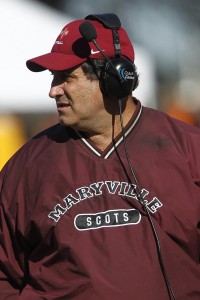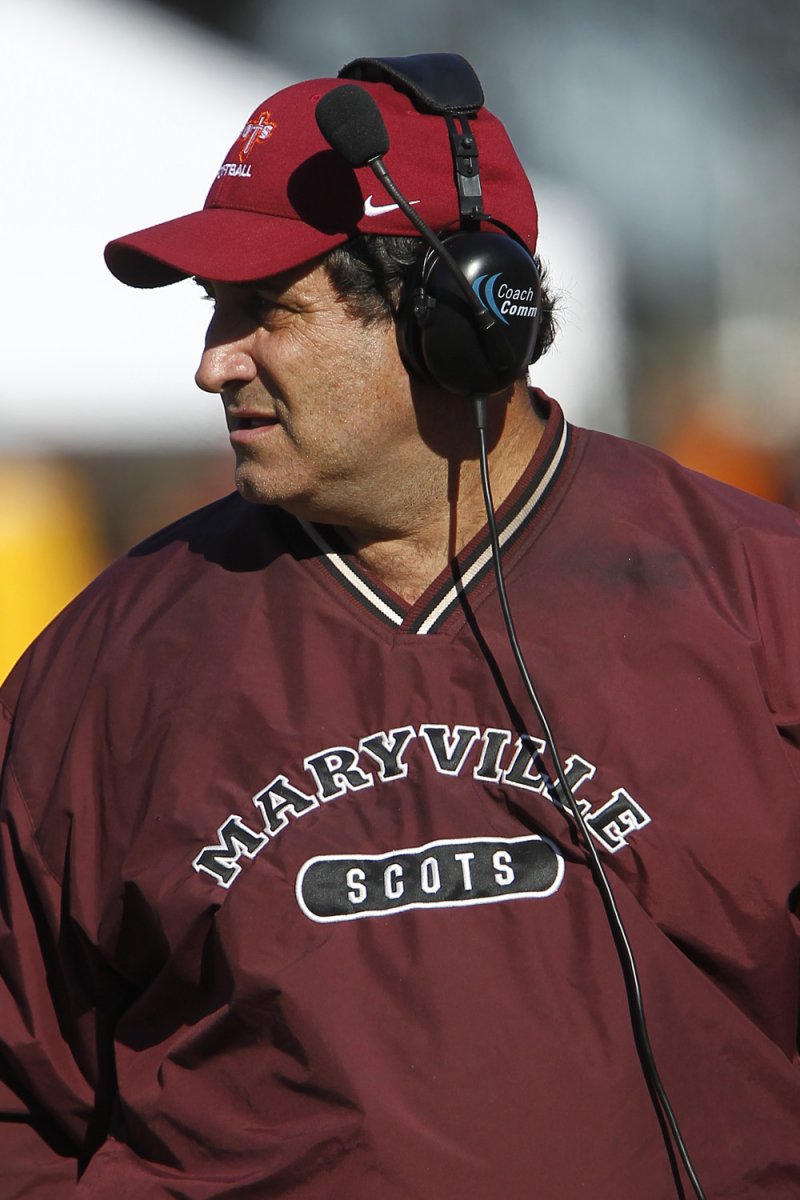The Point After

As many of us found out upon returning from Thanksgiving break, the football program at Maryville College will soon have new leadership.
Head coach Tony Ierulli, a graduate of Maryville College (1980), was let go after nine seasons with the Scots. There was much dissent from several alums, including ex-football players and fellow class members of Ierulli.
Now, regardless of how the man was in his relationships with his players and the community (and I have heard both good and bad anecdotes) Ierulli’s firing should come as no surprise when one looks at the statistics more closely.
Over the last five years, Ierulli lost the identity that made his football teams so successful in the past.
During his tenure at Maryville College, Tony Ierulli was known as a tough guy who ran a hard program. I can remember several times seeing physically exhausted football players trudging from Cooper to Pearsons at around 7:00 p.m., burned out from the two-a-days they had been running in order to be ready for the season.
Ierulli demanded physicality and strength.
In 2007, Coach Ierulli’s best year, the Fighting Scots had a record of 7-3. According to the statistics, Maryville College had 514 rushing attempts for 2,352 yards and 22 touchdowns. That amounted for over two-thirds of their offensive yards gained and touchdowns.
Physical football is best served in a run-heavy offense.
The point differential for that year was plus-47, meaning that Maryville scored 47 more points on the season than their opponents. Arguably, the player with the best statistics that year was running back Rommel Hightower, who ran for over 1,000 yards and 11 touchdowns.
Coach Ierulli’s football identity fit the skill set of the players he recruited, which allowed for high production on the offensive side of the ball.
In 2007, the Scots attempted only 259 passes for 1,064 yards and 13 touchdowns.
The Scots won games by running the ball effectively.
After 2007, it would seem Ierulli noticed the success other teams had running pass-heavy offenses, particularly the spread and West Coast offenses run by some of the more prominent Division I programs, such as Texas Tech and Oklahoma State.
Over the next four years, the rushing attack that Maryville College once exhibited began to diminish.
Rushing attempts per season fell from 446 in 2008 to 369 in 2011. Total yards rushing plummeted from 2,352 in 2007 to 1,120 in 2011, a deflation of more than 1,200 yards. Total number of rushing touchdowns for the season also fell dramatically, from 22 in 2007 to 11 in 2011.
In 2010, there were only four total rushing touchdowns for the entire season.
A team that cannot run the ball effectively cannot control the tempo of a game, much less generate yards on first down, a typical rushing down.
It seems foolish to believe that Coach Ierulli just gave up on the running game. I think he just lost sight of the important relationship between his style of physical football and running the ball.
Over the last five years, there has been another trend that may shed some light on the diminishing run game.
During this time, passing attempts went up by 73 attempts, from 259 in 2007 to 332 in 2011. Likewise, total passing yards also increased, from 1,064 in 2007 to 1,844 in 2011.
However, this progress did not translate to efficiency when it came to scoring points.
In 2011, when the Scots attempted 73 more pass attempts for 800 more yards than in 2007, the team scored the same number of passing touchdowns, 13. Similarly, as more emphasis was put on the passing game, the scoring differential per season spiraled downward, from plus-47 in 2007 to minus-84 in 2011, with an all-time low for this period coming in 2010, when the point differential was minus-104.
Thus, the more we passed, the less we ran; the less we ran, the less we scored.
Coach Ierulli’s physical mentality does not translate to success in the passing game, which requires more finesse and technicality than running does. Routes have to be crisp, quarterback fundamentals and progressions must be fluid and the offensive line must be technically sound in pass protection.
Over the last four years, Ierulli has been trying to pass the ball with a running team.
This year, he brought in a group of players more geared toward a passing-style offense. This translated into higher passing stats.
Yet, the record at the end of the year stayed the same, 4-6. The fact of the matter is, he is a running-team coach.
I want to thank Coach Ierulli for all that he has done in his time here a Maryville College. It is important to note his accomplishments, which do not show up as well on paper (39-55 overall record at MC) as they do in the tenacity and spirit shown by all the football players who have gone through his program.
Ierulli brought MC’s football program to a place where I believe it will have great success in the future. He did his job to the best of his ability and left it better than when he started.
Unfortunately, as is the vice of sports, sometimes you coach yourself out of a coaching job, not through failure but through creating a foundation for greater possibilities than you are able to attain. Sometimes, in making a situation better, you create the opportunity for new direction, and it is in that new direction Maryville will now head.
For those who think ill toward those in charge for letting Coach Ierulli go, just look at the statistics, look at the roster and understand that MC football has become a team that does not best utilize Coach Ierulli’s talents anymore.
Best of luck to Coach Ierulli, in any and all of his undertakings in the future.

